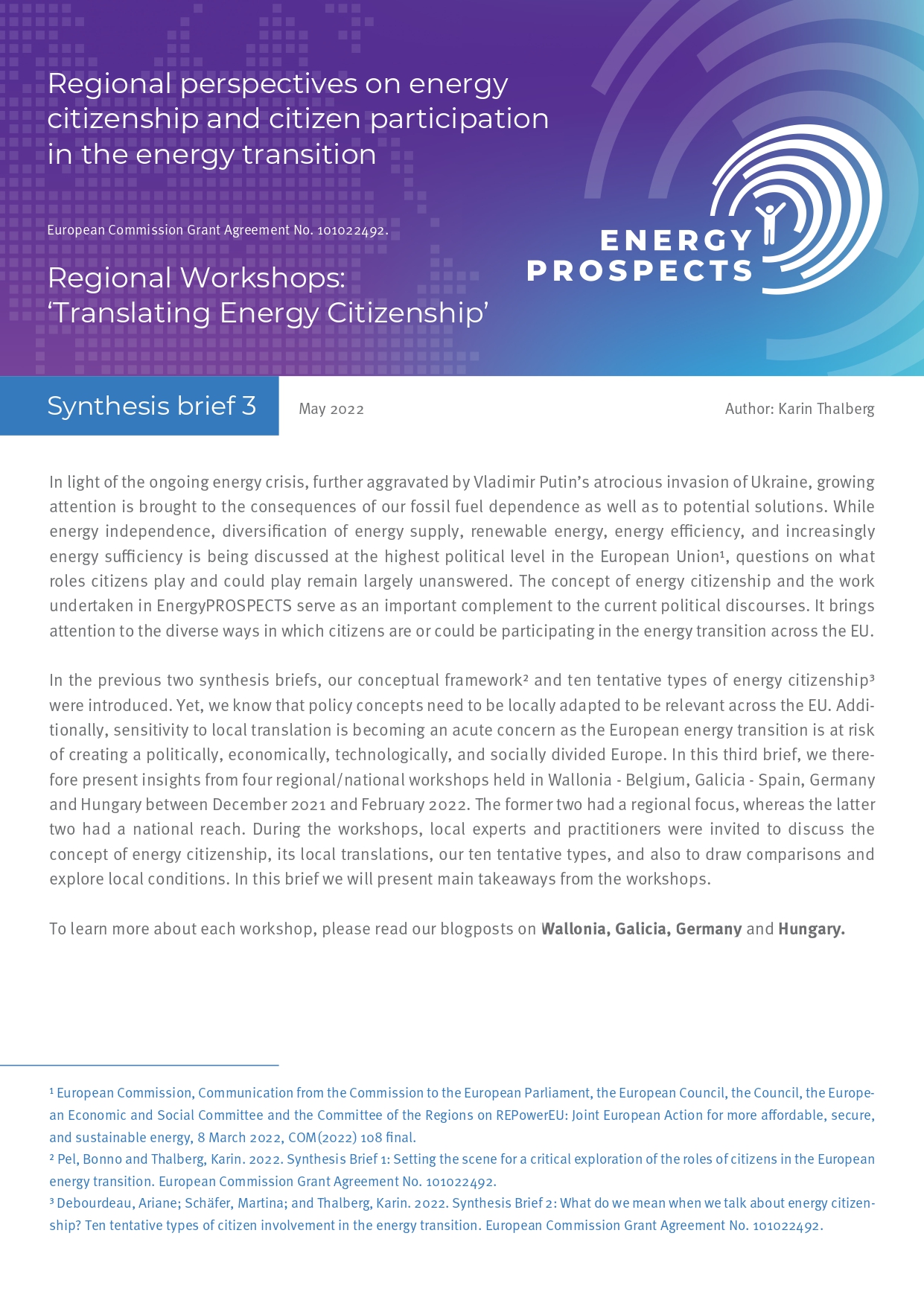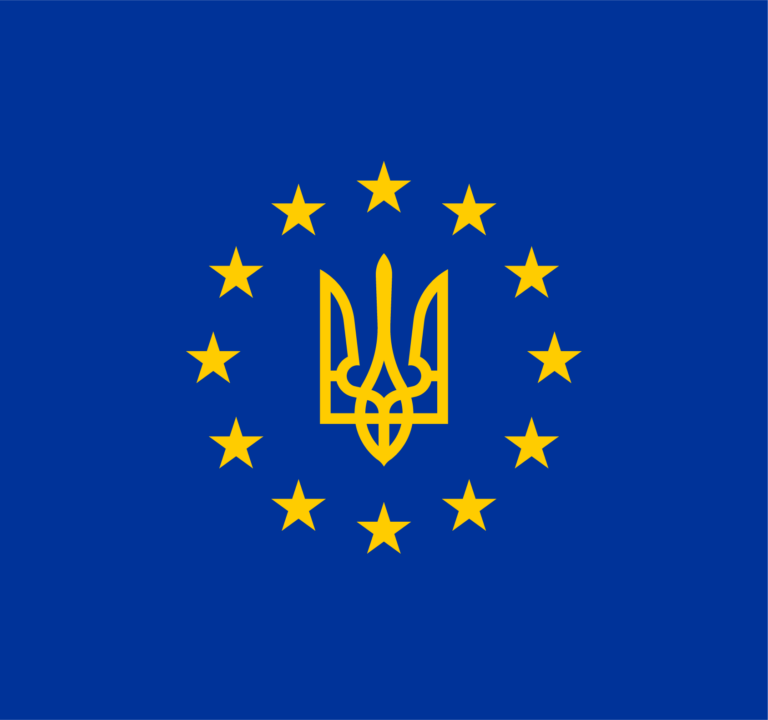Other document
Regional perspectives on energy citizenship and citizen participation in the energy transition

In light of the ongoing energy crisis, further aggravated by Vladimir Putin’s atrocious invasion of Ukraine, growing attention is brought to the consequences of our fossil fuel dependence as well as to potential solutions. While energy independence, diversification of energy supply, renewable energy, energy efficiency, and increasingly energy sufficiency is being discussed at the highest political level in the European Union¹, questions on what roles citizens play and could play remain largely unanswered. The concept of energy citizenship and the work undertaken in EnergyPROSPECTS serve as an important complement to the current political discourses. It brings attention to the diverse ways in which citizens are or could be participating in the energy transition across the EU.
In the previous two synthesis briefs, our conceptual framework² and ten tentative types of energy citizenship³ were introduced. Yet, we know that policy concepts need to be locally adapted to be relevant across the EU. Addi- tionally, sensitivity to local translation is becoming an acute concern as the European energy transition is at risk of creating a politically, economically, technologically, and socially divided Europe. In this third brief, we there- fore present insights from four regional/national workshops held in Wallonia – Belgium, Galicia – Spain, Germany and Hungary between December 2021 and February 2022. The former two had a regional focus, whereas the latter two had a national reach. During the workshops, local experts and practitioners were invited to discuss the concept of energy citizenship, its local translations, our ten tentative types, and also to draw comparisons and explore local conditions. In this brief we will present main takeaways from the workshops.
SUR LE MÊME THÈME
ON THE SAME THEME
PUBLICATIONS
Building decarbonization and affordable housing: promoting local skills and accelerating the green deal

Towards an EU–Ukraine alliance: A plan for an EU–Ukraine Joint Training Mission

War mongers and peace makers

MÉDIAS
MEDIAS
Les Européens divisés à propos de l’Ukraine et face à l’imprévisibilité de Donald Trump

Comment la Russie enrôle de gré, mais également de force des Africains pour combattre en Ukraine

La fin du transit du gaz russe par l’Ukraine met l’UE sous pression
















